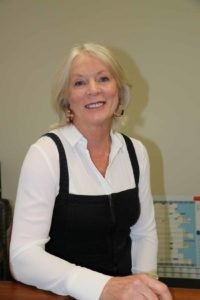
This week is National Stroke Week and the Stroke Foundation is urging people to take control of their health by taking some simple steps that will reduce their risk of having a stroke.
Strokes can impact anyone of any age with a stroke occurring every nine minutes in Australia.
They attack the brain and they can strike in an instant and change the lives of those impacted and their loved ones forever.
Cobar resident Narelle Mackaway was a fit and healthy 62 year old when she had her stroke.
Narelle said the first warning sign she had was a loss of balance.
“I went bike riding and fell off a few times, and my friends were laughing, but I put it down to not knowing how to ride a bike!” Narelle told The Cobar Weekly.
She said it was a few days later that she was working on her computer at home and started coughing and couldn’t stop.
“I didn’t have a cold or anything, I just started coughing for no reason.
“My husband Peter gave me water and told me to lie down. He was concerned it was my heart and quickly called the ambulance.
“I told him I was fine. At that point I still had speech and there was no pain.
“I walked to the ambulance and got in and I was feeling rather foolish and thought I was wasting the ambo’s time.
“Then I found I couldn’t answer any of their questions, I couldn’t talk.
“It was very frightening, the realisation I was having a stroke,” she recounts.
“I now know it’s so important to receive treatment quickly.”
Narelle attributes the prompt treatment by the paramedics to her successful recovery.
She was rushed to hospital and admitted to an acute stroke ward where she underwent treatment and physiotherapy.
Narelle’s recovery was quick—she worked on her computer each day to keep her brain active and also walked a lot, which saw her released from hospital a week later.
“Everyone is different, mine was a mild stroke,” she said.
The stroke still affects Narelle. She said when she’s tired, she notices she has difficulty with some words when talking or typing.
Narelle’s advice to anyone who thinks they are having a stroke is not to ignore any symptoms.
“The quicker the intervention the better the outcome. If you’re feeling stressed, you have to learn to slow down, take time for yourself, learn to relax. .”
The Stroke Foundation advises staying active, eating well, drinking alcohol in moderation, quitting smoking and making time to see your doctor for a health check will help your chances of avoiding a stroke.

